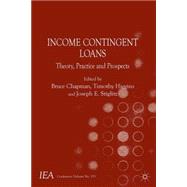The text describes an alternative approach to ICLs, which takes the form of human capital contracts or graduate taxes, as well as examining hybrid schemes that combine the attractive aspects of both arrangements. Case studies are used to examine the prospects for ICLs for higher education in Malaysia, Germany, Thailand, Chile and Colombia, and there is discussion of the barriers for adoption of ICLs in countries that lack efficient institutions for debt collection.
A key message from the contributions is that in countries with appropriate institutions for taxation administration, there are considerable transactional efficiencies associated with ICLs. These efficiencies, combined with the improvements in risk and incentives that well-designed ICL programs can provide, suggest that such programs can play an important role in a modern welfare state.









